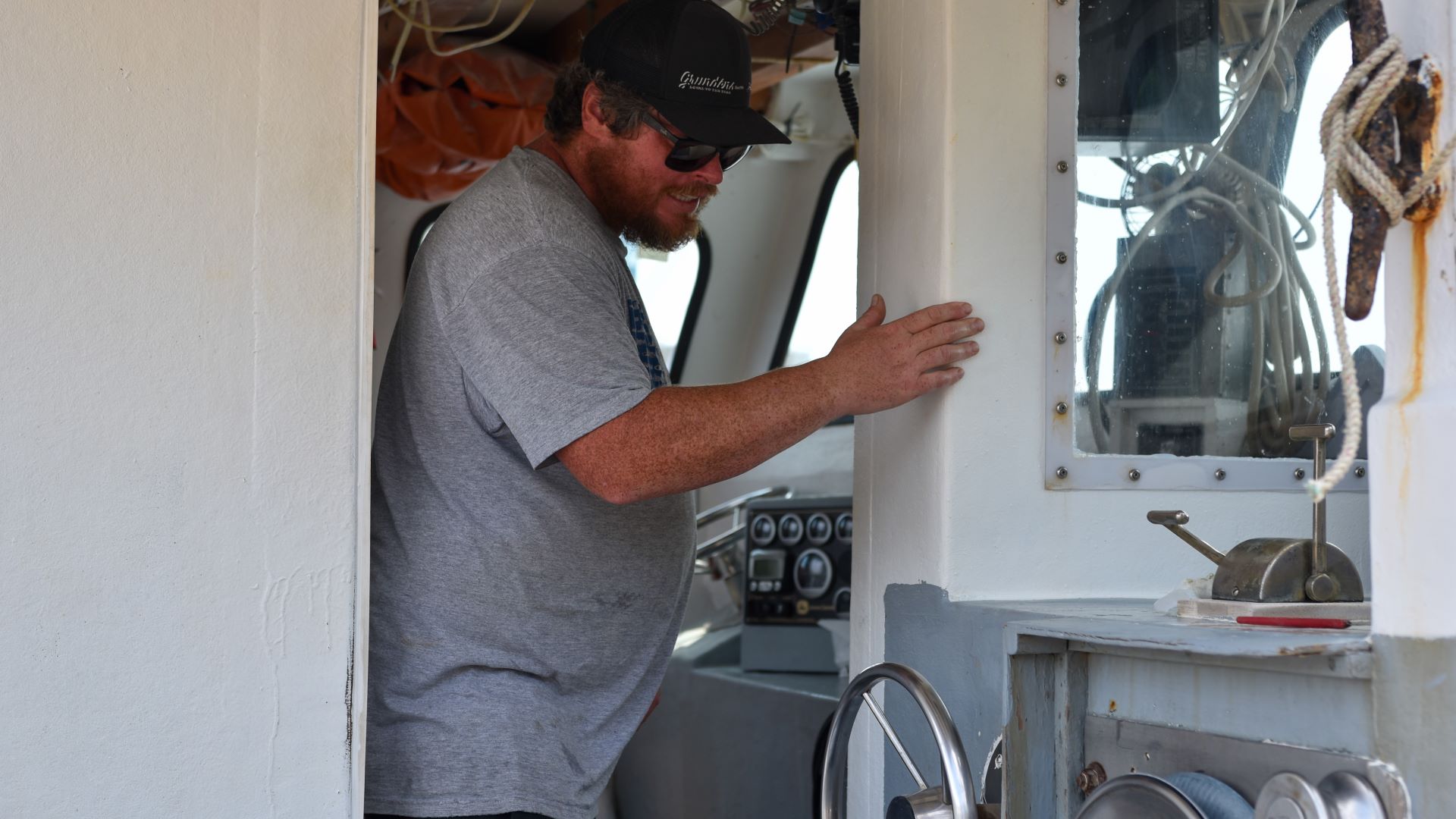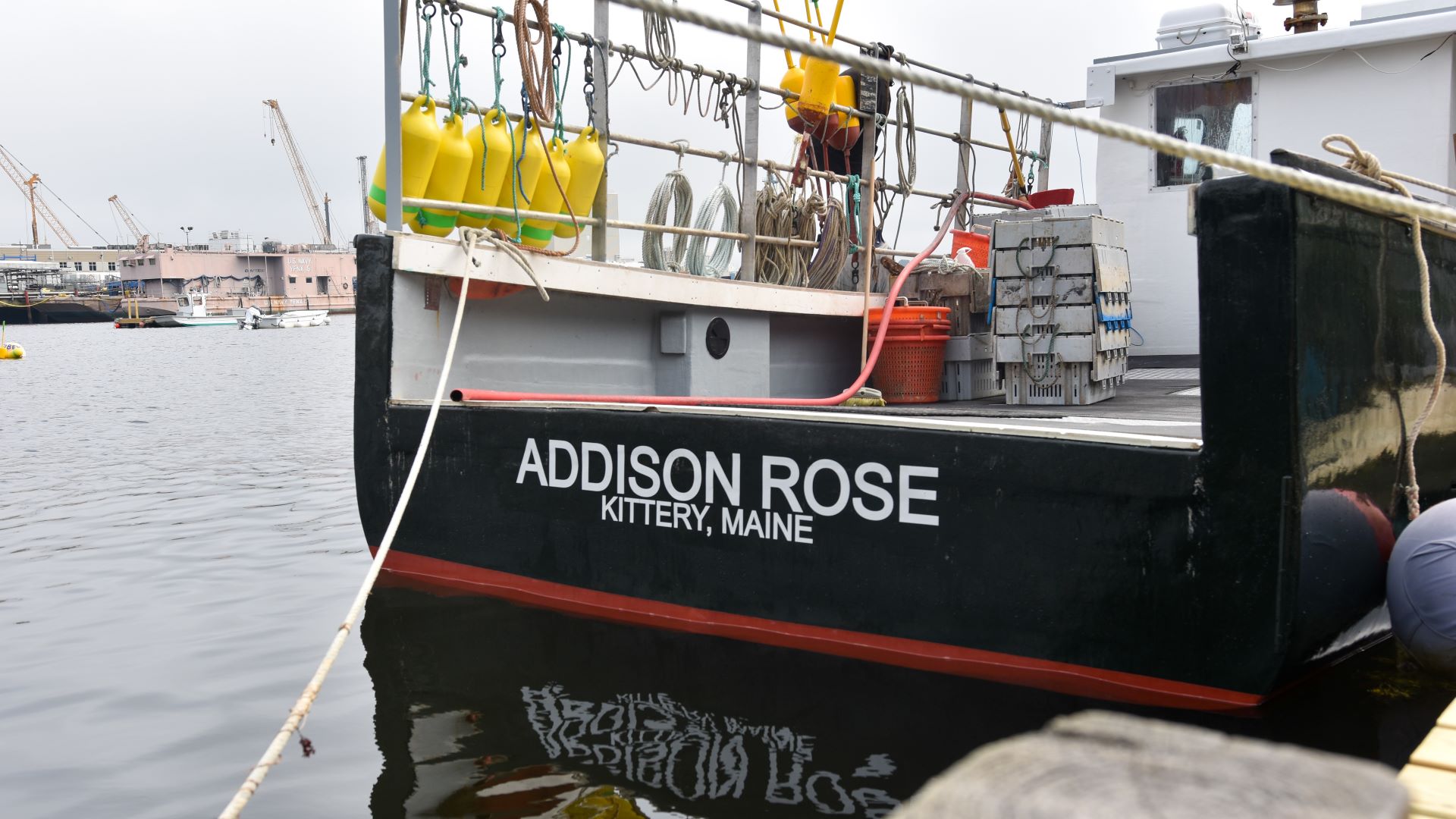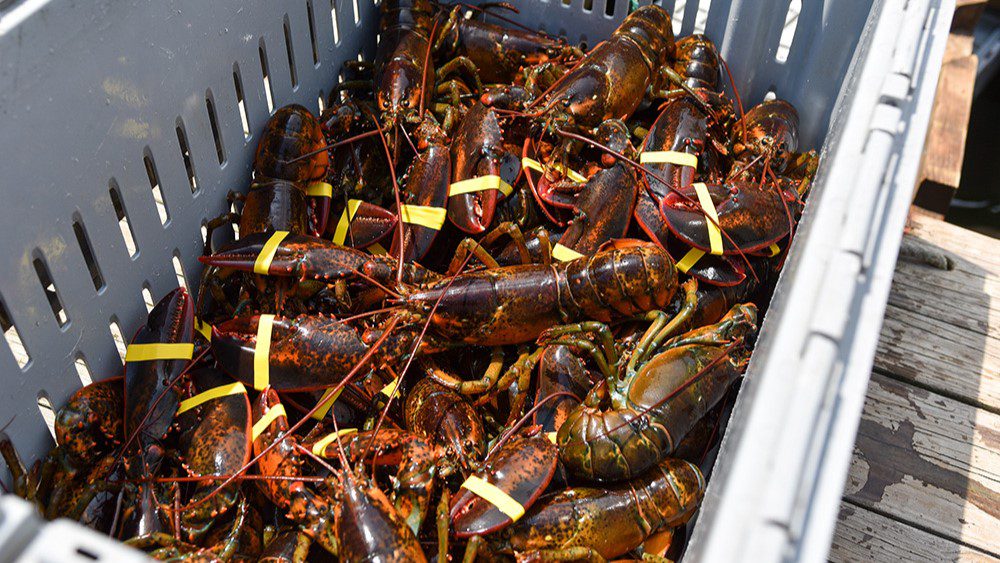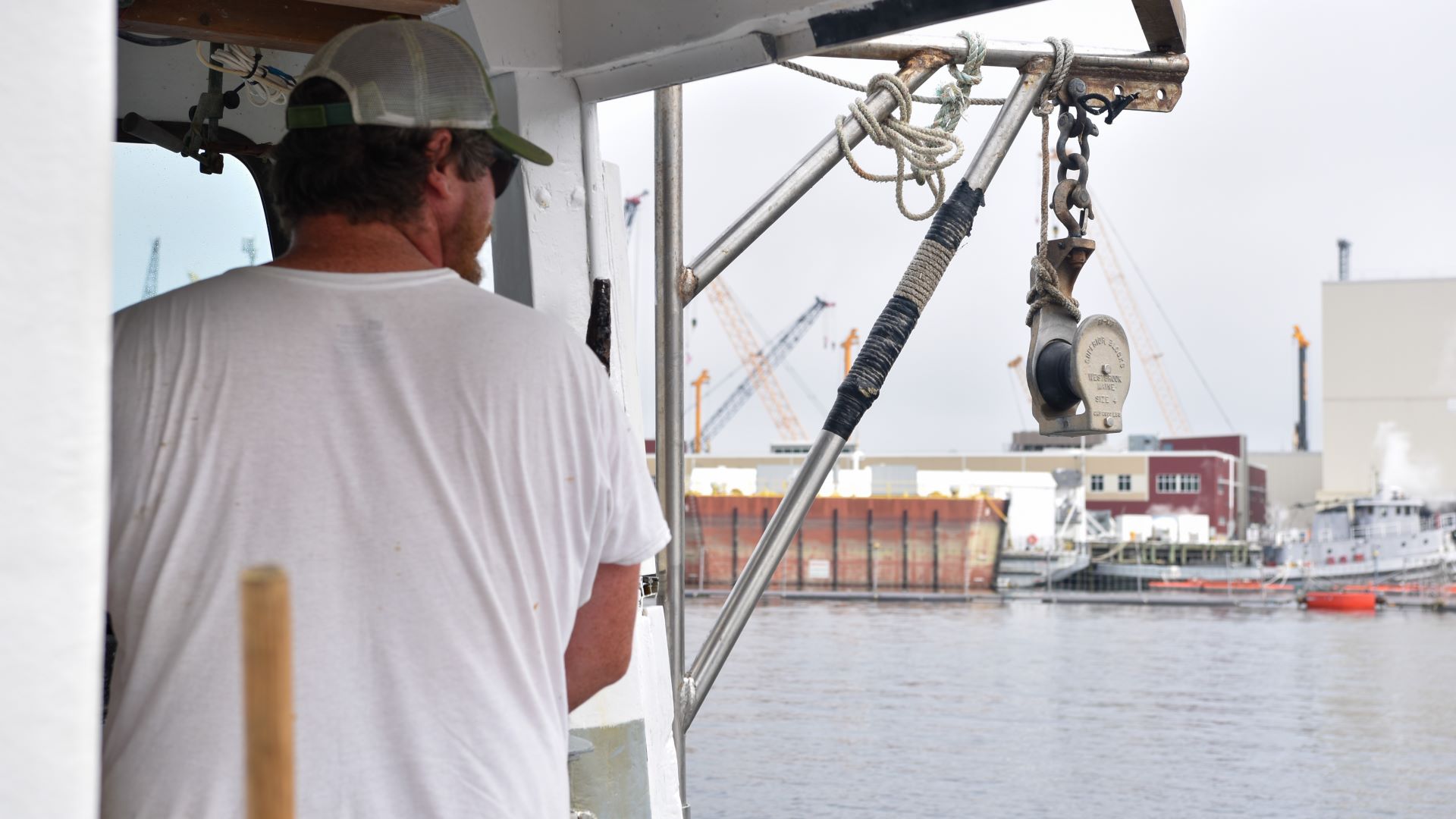For Chris Tobey, a fourth-generation Maine lobsterman, his job is a calling. The feeling of going out on the ocean is almost indescribable.
“Going down to the boat in the morning, it’s like an adrenaline rush,” he said. “You go down, you turn the key, fire up the diesel. You get to ride out, see the sunrise.”
Being on the water gives him a feeling of freedom. No day is ever the same, which Tobey enjoys. Seeing the ocean, sunrise, seals, whales and fish is amazing, he said.
Christopher Robert Tobey Jr. was born on July 22, 1991, in Portland, into a family of fishermen. He spent a lot of time on the docks and water. He watched his father and grandfather talk with other fishermen and learned the lingo. He also learned a lot by going to other docks because everyone does things differently.
“As a little kid, I always knew who everyone was and what their boat was,” he said.
Tobey’s father always told him fishing wasn’t easy — but it was there if he wanted it.
“I started lobster fishing because my father was a lobster fisherman, and when I was a kid that’s all I wanted to do,” he said.
However, fishing is dangerous. And on May 11, 2008, Tobey’s life changed forever.
“It was Mother’s Day, a Sunday, and we went out to go fishing to fill some orders for a couple of my dad’s friends,” Tobey said. “I remember it was me, my father and another fisherman, Robbie Blackburn. He was working for my dad. We went out and it was a great day and the weather started to turn.”
They went to haul one of the last traps of the day when they took a big, rogue wave. It caused the stern of the boat to go over the bow, which is called “pitchpoling,” Tobey said. It rolled the boat over and crushed the wheelhouse because they were close to rocks.
“I just remember my father pulling me out of the wheelhouse and getting sucked away from the boat,” he said. “My father came after me to try to save me, and he lost his life because of that. He did save me but I lost him.”
Tobey’s father would be more than proud of him, said Ryan Sirois, his lifelong friend and fellow lobsterman.
“I think the challenges Chris has overcome are the stuff of legend,” Sirois said. “To come back from a fatal fishing accident and continue to fish the very spot his father died is incredible, and he deserves a lot of praise for how well he has done.”
The year after his father died, Tobey and Sirois graduated from high school. They’ve been lobstering together ever since, and now work out of Kittery and York.
Managing a personal life with an unpredictable career
Tobey met his wife, Lauren Twomey, when he was 20. They have been together for 12 years. He has built a family, which can be challenging for lobstermen with their unpredictable schedules.
Twomey, 32, didn’t grow up in a fishing family, so this way of life was new to her when she met her husband.
“He’s gone from sun up to basically dinnertime,” she said.
“It’s not easy for a wife in the lobster industry. There’s a lot of stuff that they have to put up with,” Tobey said. “There’s a lot of stuff that you miss. Your work is mostly based around the weather.”
“For a long time, you don’t really know what you’re working for. You want a better truck, you want a better boat, you want a bigger house — you want nice things, you want nice lobster traps,” Tobey said.
“And then you start having kids and your goals change a little bit. We had my daughter Addison Rose Tobey in 2017 and it’s a whole entire different drive, a different fire in the morning that you want to do well for your kids.”

With the current threats to the lobster industry, from the right whale debate causing changes in regulations to changing water temperatures, the fate of the profession is uncertain. Tobey said he hopes there will be something left for his children, who would be fifth-generation lobstermen if they choose.
“If there’s nothing here for them, I don’t want them to be fishermen,” he said. “I want them to go to school and I want them to have a good job.”
Tobey’s family has been proud to be fishermen for four generations, he said. It’s been their way of life. But his children may choose a different path.
“Right now, with the way that things are going in this industry, it’s pretty tough to want them to be fishermen and want to continue this legacy that I’m so proud of,” Tobey said.
Fishing his own traps in his own boat
Tobey started lobstering with his own gear when he was 6. His first boat was a 12-foot wooden skiff his dad built in the backyard.
He fished a couple traps out of it until he retired the skiff and got a 21-foot fiberglass Novi boat from Nova Scotia. After a couple years, they sold that boat so he could buy a 17-foot skiff and fish his own traps at age 10.
“And it was all up from there,” he said.

At 15, he got his first inboard diesel vessel. His current boat, the Addison Rose — named after his daughter — is a 40-foot Novi boat from Nova Scotia. Tobey has never owned a Maine-built boat, only Nova Scotian models.
A boat docked in the harbor
The changes in the industry have increased the time and money needed to run and manage his own operation.
Under new rules to protect right whales, lobstermen have to apply weak links near the buoy, traps and midpoints of the rope, paint their ropes to show who they belong to and paint more if in federal waters, Tobey said.
A federal appeals court ruled in favor of the Maine Lobstermen’s Association in June and directed the federal government to “develop a new biological opinion to protect the right whale without decimating Maine’s lobster industry,” according to an MLA spokesperson. The current right whale rules were deemed sufficient to ensure the continued operation of the lobster fishery through 2028.
“The whole thing makes me sick,” Tobey said. “I have two kids, a wife — I’ve put my whole life into this.”
While Tobey fishes and provides for the family, Twomey stays at home, taking care of their kids and handling everything else, she said.
Sirois, 32, started lobstering at age 17 with Tobey. He has spoken recently at various events and conferences on behalf of lobstermen because he, like many others, worries about the survival of the industry.
“I love lobstering for the dockside community, even guys that don’t like each other would drop everything to help a fellow fisherman in need,” Sirois said.

Tobey said he’s never seen a right whale. He’s seen humpback and minke whales. Yet the endangered species, which totals approximately 330, according to the National Oceanic and Atmospheric Administration, has caused changes that Tobey said threatens his livelihood.
“It’s making it difficult in day-to-day life,” he said. “The regulations, they’ve stopped for now, but they’re not going to stop until we’re gone.”
If regulations impact the number of traps a lobsterman can use, Tobey might not be able to continue fishing his 800 traps.
“It’s scary because we’re only on his income,” Twomey said. “If he had to go down to 400 traps, we wouldn’t survive.”







